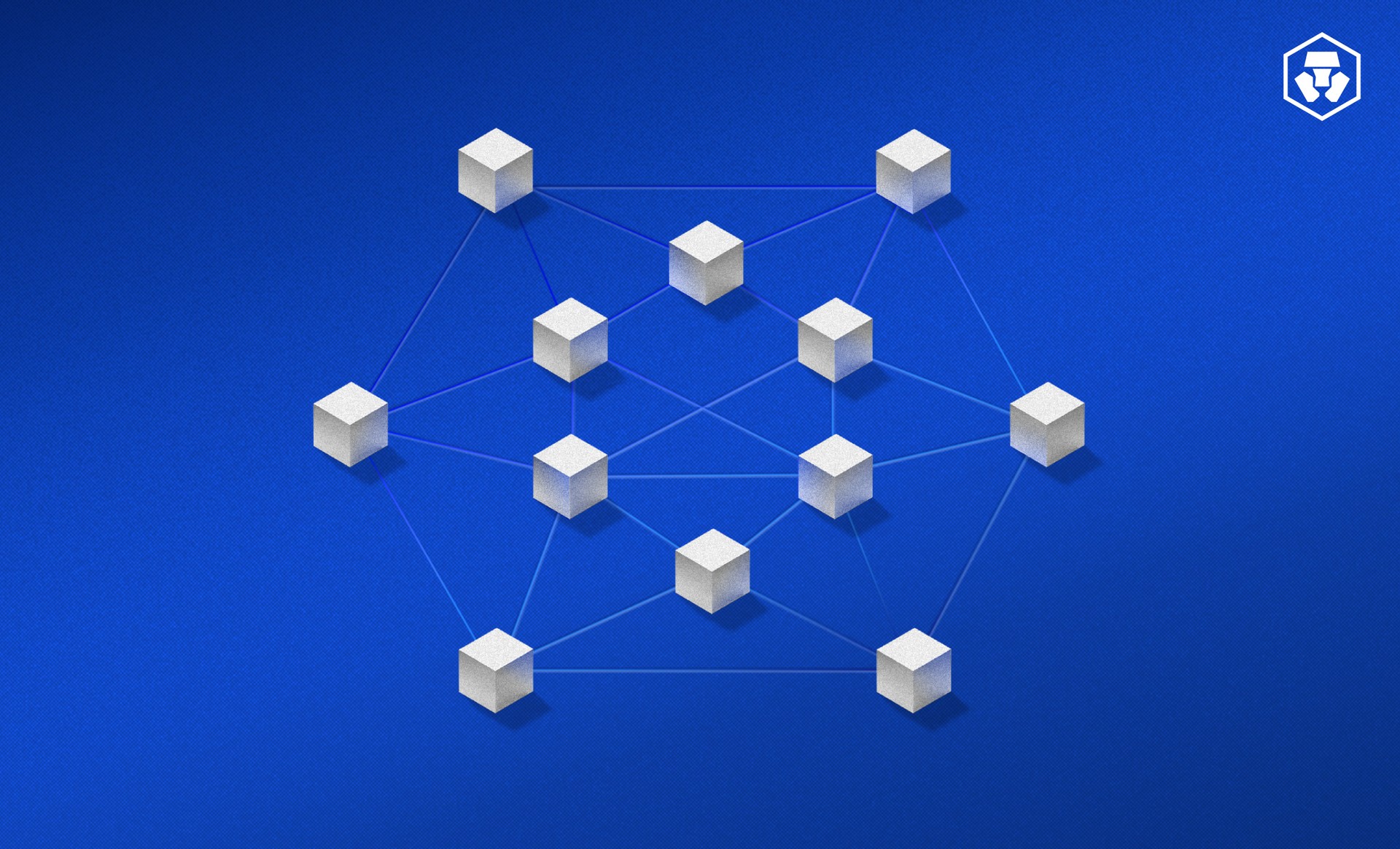In the ever-evolving landscape of technology and finance, blockchain has emerged as a groundbreaking solution that offers transparency, security, and efficiency. One of the prominent projects in the blockchain space is Radium, a platform that aims to revolutionize governance by leveraging the power of this transformative technology. In this article, we will explore the concept of Radium and delve into its unique features, benefits, and potential impact on the world of governance. If you are planning to invest in Bitcoin, you may consider using a reliable trading platform like Immediate Trading App.

What is Radium?
Radium is a decentralized governance platform built on the foundation of blockchain technology. It aims to provide individuals, communities, and organizations with the tools and infrastructure needed to facilitate transparent decision-making processes. By harnessing the power of blockchain, Radium ensures that every action and transaction on its platform is recorded immutably, fostering a high level of accountability and trust.
How Does Radium Work?
Radium operates on a hybrid Proof-of-Stake (PoS) and Proof-of-Authority (PoA) consensus mechanism, combining the advantages of both to achieve a secure and efficient governance system. The PoS aspect allows token holders to participate in the decision-making process by staking their Radium tokens and earning rewards. On the other hand, the PoA mechanism ensures fast and reliable block confirmation, enabling quick governance actions and minimizing the risk of malicious activities.
Key Features of Radium
- Transparent Decision Making
One of the core principles of Radium is transparency. Through the use of blockchain technology, Radium enables the creation and execution of smart contracts that automate various governance processes. These smart contracts are publicly accessible, allowing stakeholders to verify and audit the decision-making procedures, ensuring transparency at every step.
- Immutable Records
Blockchain’s immutability is a significant advantage that Radium leverages to ensure the integrity of governance records. All actions and transactions within the Radium ecosystem are recorded on the blockchain, creating an immutable trail of decision-making history. This not only enhances transparency but also mitigates the risk of fraud or manipulation.
- Decentralization and Security
Radium operates as a decentralized platform, eliminating the need for intermediaries and central authorities. This decentralized approach enhances security and reduces the vulnerability to single points of failure. By distributing power and decision-making authority among participants, Radium fosters a more inclusive and resilient governance model.
- Efficient Voting Mechanism
Radium offers a robust and efficient voting mechanism that enables stakeholders to express their opinions and contribute to the decision-making process. Through the platform’s intuitive interface, users can participate in various voting events, ranging from simple binary choices to more complex multi-option decisions. The use of blockchain technology ensures the accuracy, integrity, and tamper-proof nature of the voting system.
Potential Applications of Radium
- Corporate Governance
Radium has the potential to revolutionize corporate governance by introducing transparency, accountability, and efficiency to the decision-making processes of corporations. Through the use of smart contracts, stakeholders can have a clear overview of the actions taken by the board of directors, ensuring that decisions align with the best interests of the company and its shareholders.
- Government and Public Sector
Governments and public sector organizations can benefit from Radium’s transparent governance model. By implementing blockchain-based solutions, these entities can enhance citizen participation, streamline bureaucratic processes, and foster greater trust between the government and its constituents. Radium’s immutable records can also serve as a valuable resource for audits and investigations.
- Non-Profit Organizations and Communities
Non-profit organizations and community-based initiatives often face challenges related to governance and decision-making. Radium can provide a decentralized platform for these entities to foster transparency, encourage collaboration, and ensure that resources are allocated effectively. By leveraging blockchain technology, Radium can facilitate fair and transparent decision-making processes within these organizations.
- Tokenomics and Incentives
Radium operates with its native utility token, which plays a crucial role in the governance and operation of the platform. Token holders have the opportunity to stake their Radium tokens, contributing to the validation and security of the network. In return, they receive rewards for their participation, incentivizing active engagement in the governance ecosystem. This creates a dynamic and self-sustaining community of participants who are motivated to contribute to the growth and development of Radium.
- Integration with Existing Systems
Radium aims to provide seamless integration with existing governance frameworks and systems. Recognizing the importance of interoperability, Radium enables compatibility with other blockchain projects and platforms, allowing for the exchange of information and assets. This interoperability strengthens the overall ecosystem and expands the possibilities for collaborative governance across different sectors.
Benefits of Radium
- Enhanced Transparency and Accountability
By leveraging blockchain technology, Radium introduces a new level of transparency and accountability to governance processes. Every decision, vote, and action is recorded immutably on the blockchain, providing an auditable trail of events. This transparency builds trust among participants and fosters a culture of responsible decision-making.
- Increased Efficiency and Cost Savings
Traditional governance processes often involve time-consuming manual procedures, which can be prone to errors and delays. Radium streamlines these processes through the automation of smart contracts and decentralized decision-making. This not only increases efficiency but also reduces costs associated with administrative overhead and intermediaries.
- Empowered Stakeholder Participation
Radium empowers stakeholders by giving them a direct voice in the decision-making processes. Through voting mechanisms and participation in governance events, individuals can actively contribute to shaping the future of the organizations they are involved in. This inclusivity strengthens the overall governance ecosystem and ensures that decisions reflect the collective will of the participants.
- Robust Security and Trust
Blockchain technology forms the foundation of Radium’s governance platform, providing inherent security and trust. The decentralized nature of the blockchain ensures that no single entity has control over the system, reducing the risk of manipulation or fraudulent activities. Additionally, the immutability of blockchain records provides a verifiable and tamper-proof history of decisions and actions.
The Future of Transparent Governance with Radium
Radium’s vision of transparent governance on the blockchain holds immense potential for various sectors and industries. As organizations and communities recognize the benefits of decentralized decision-making and accountability, the adoption of platforms like Radium is expected to grow. The integration of blockchain technology in governance systems has the power to reshape the way decisions are made, leading to more efficient, inclusive, and trustworthy processes.
With its robust features, Radium aims to be at the forefront of this transformation, providing individuals and organizations with the tools they need to embrace transparent governance. By leveraging the benefits of blockchain technology, Radium offers a secure, efficient, and transparent platform that can revolutionize governance in corporate, government, and non-profit sectors.
Conclusion
Radium represents a significant advancement in transparent governance on the blockchain, leveraging the power of this technology to ensure transparency, accountability, and efficiency in decision-making processes. With features like transparent smart contracts, immutable records, and decentralized voting mechanisms, Radium offers organizations and communities a comprehensive solution to enhance their governance practices. As the world embraces the potential of blockchain technology, Radium serves as a testament to its transformative impact on governance. Through a steadfast commitment to transparency, Radium aims to empower individuals, foster collaboration, and shape a future where decisions are made collectively and with unwavering integrity.





